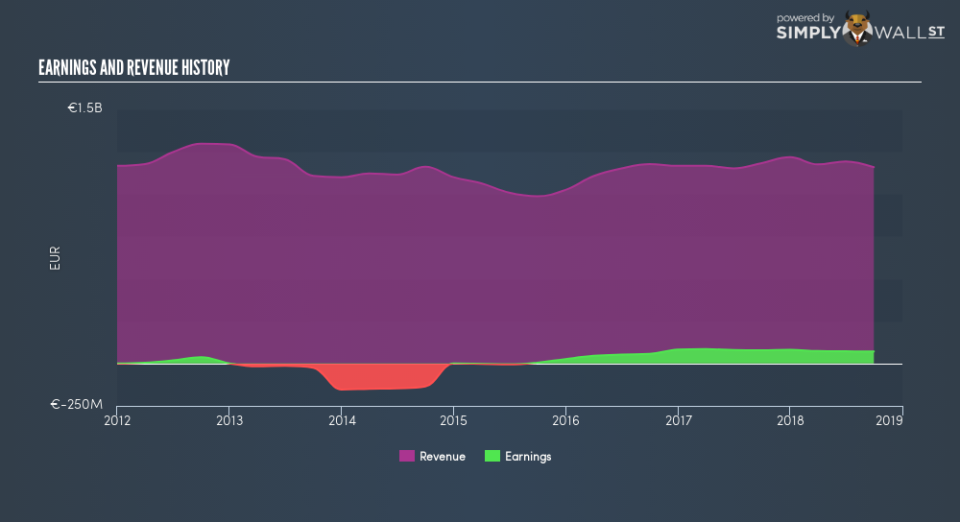How Koenig & Bauer AG (FRA:SKB) Can Impact Your Portfolio Volatility

If you’re interested in Koenig & Bauer AG (FRA:SKB), then you might want to consider its beta (a measure of share price volatility) in order to understand how the stock could impact your portfolio. Modern finance theory considers volatility to be a measure of risk, and there are two main types of price volatility. First, we have company specific volatility, which is the price gyrations of an individual stock. Holding at least 8 stocks can reduce this kind of risk across a portfolio. The other type, which cannot be diversified away, is the volatility of the entire market. Every stock in the market is exposed to this volatility, which is linked to the fact that stocks prices are correlated in an efficient market.
Some stocks are more sensitive to general market forces than others. Beta can be a useful tool to understand how much a stock is influenced by market risk (volatility). However, Warren Buffett said ‘volatility is far from synonymous with risk’ in his 2014 letter to investors. So, while useful, beta is not the only metric to consider. To use beta as an investor, you must first understand that the overall market has a beta of one. A stock with a beta below one is either less volatile than the market, or more volatile but not corellated with the overall market. In comparison a stock with a beta of over one tends to be move in a similar direction to the market in the long term, but with greater changes in price.
Check out our latest analysis for Koenig & Bauer
What SKB’s beta value tells investors
Zooming in on Koenig & Bauer, we see it has a five year beta of 0.89. This is below 1, so historically its share price has been rather independent from the market. This means that — if history is a guide — buying the stock would reduce the impact of overall market volatility in many portfolios (depending on the beta of the portfolio, of course). Share price volatility is well worth considering, but most long term investors consider the history of revenue and earnings growth to be more important. Take a look at how Koenig & Bauer fares in that regard, below.
Could SKB’s size cause it to be more volatile?
Koenig & Bauer is a small cap stock with a market capitalisation of €702m. Most companies this size are actively traded. Small companies can have a low beta value when company specific factors outweigh the influence of overall market volatility. That might be happening here.
What this means for you:
The Koenig & Bauer doesn’t usually show much sensitivity to the broader market. This could be for a variety of reasons. Typically, smaller companies have a low beta if their share price tends to move a lot due to company specific developments. Alternatively, an strong dividend payer might move less than the market because investors are valuing it for its income stream. This article aims to educate investors about beta values, but it’s well worth looking at important company-specific fundamentals such as Koenig & Bauer’s financial health and performance track record. I highly recommend you dive deeper by considering the following:
Future Outlook: What are well-informed industry analysts predicting for SKB’s future growth? Take a look at our free research report of analyst consensus for SKB’s outlook.
Past Track Record: Has SKB been consistently performing well irrespective of the ups and downs in the market? Go into more detail in the past performance analysis and take a look at the free visual representations of SKB’s historicals for more clarity.
Other Interesting Stocks: It’s worth checking to see how SKB measures up against other companies on valuation. You could start with this free list of prospective options.
To help readers see past the short term volatility of the financial market, we aim to bring you a long-term focused research analysis purely driven by fundamental data. Note that our analysis does not factor in the latest price-sensitive company announcements.
The author is an independent contributor and at the time of publication had no position in the stocks mentioned. For errors that warrant correction please contact the editor at editorial-team@simplywallst.com.

 Yahoo Finance
Yahoo Finance 
